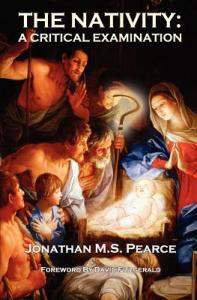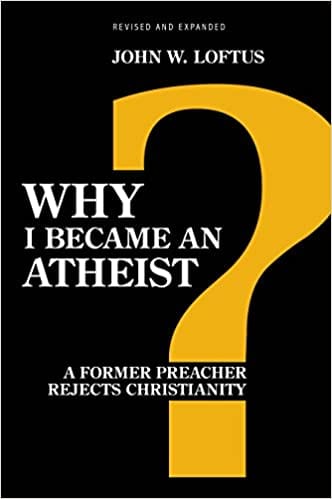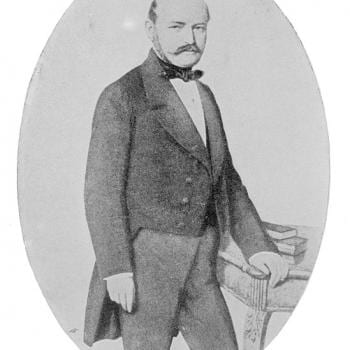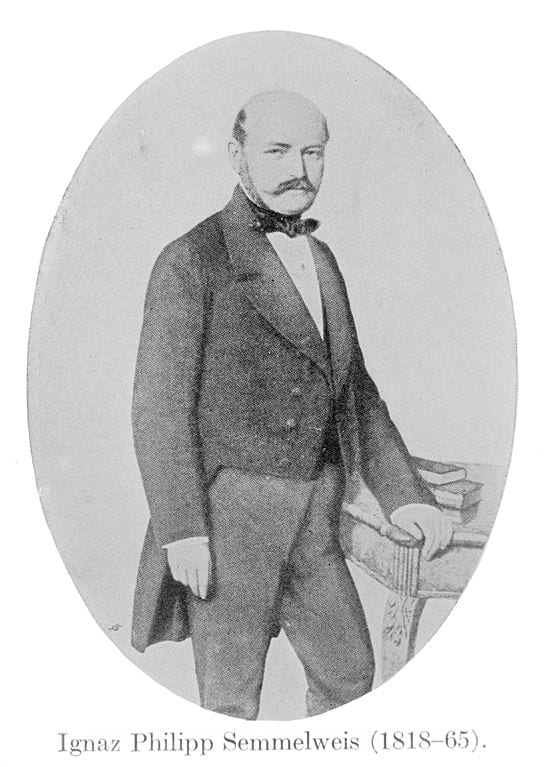Atheist anti-theist and “philosopher” Jonathan M. S. Pearce runs the blog, A Tippling Philosopher. He has encouraged me to visit his site and offer critiques, and wrote under a post dated 12-14-21: “I even need to thank the naysayers. Some of them have put up with a lot of robust pushback and still they come. Bravery or stupidity – it’s a fine line. But they are committed, and there is something to be said for taking that commitment into the lion’s den. Dave, you are welcome at my new place. Come challenge me. . . . thanks for your critiques of my pieces. Sorry I couldn’t get to more of them.” This echoes his words about me in a post dated 7-20-17, where he said, “well done . . . for coming here and suffering the slings and arrows of atheists’ wrath. . . . I commend him for getting involved and defending himself. Goodonya, mate.”
Under a post dated 1-27-22, he stated: “I do welcome disagreements because I don’t want [my blog] to [be] just an echo chamber. . . . [S]omeone like Armstrong does give me ammunition for some of my pieces!” Likewise, on 3-18-14 he proclaimed: “Dissenting views are utterly vital to being sure that you are warranted in your own beliefs and views.” And on 7-20-17: “I put my ideas and theories about the world out there for people to criticise. . . . I want to make damned sure that they are warranted. I can’t stand the idea that I could . . . believe something that is properly unwarranted. . . . What’s the point in self-delusion? . . . I put something out there, people attack it, and if it still stands, it’s pretty robust and I am happy to hold it. If not, I adapt and change my views accordingly.”
I’m delighted to oblige his wish to receive critiques and dissenting views! The rarity of his counter-replies, however, is an oddity and curiosity in light of this desire. He wrote, for example, on 11-22-19: “[I can’t be] someone who genuinely is not interested in finding out the truth about philosophy, God and everything. If I come up against any point that is even remotely problematic to my worldview, I feel the absolute necessity to bottom it out. I need to reconcile at least something; I have work to do. I cannot simply leave it as it is. . . . I would simply have to counter the arguments, or change my position.” Whatever; this hasn’t been my experience with him; only in short and infrequent spurts. I continue to offer them in any event, because they aren’t just for his sake.
Here’s what he thinks (by the way) of Jesus: “The Jesus as reported in the Gospels is so far removed from the real and historical figure of Jesus, overlaid with myth, story-telling, propaganda and evangelist agenda, that the end result is synonymous with myth. . . . I’d take mythicism over Christianity any day. And they call mythicists fringe as if the position is absurd? Now that’s crazy.” (8-2-14)
Jonathan’s words will be in blue.
*****
This is part of a series of replies to Jonathan’s book, The Nativity: A Critical Examination (Onus Books, 2012). I am utilizing a text from Barnes & Noble (Nook Book) which has no page numbers, so I can only cite chapter names.
I. Fact or Fiction?
[T]he infancy narratives are (at least mainly) fictional. (Introduction)
This is just to let my readers know what Jonathan thinks of these biblical texts. As we start to closely examine the rationale and arguments he makes, that form his “cumulative case” that he thinks is “water-tight”, we’ll see how flimsy and pitiful it really is. I’ve already strongly critiqued his related arguments several times and never found any significant difficulty in doing so. One can have fifty weak strands of rope or weak links that won’t become any stronger, just because they are collected together.
II. Incidents That Couldn’t Possibly Have Been Recorded?
Pearce marvels at incidents recorded in the Bible “to which there were probably no witnesses (Jesus talking to Herod) available to the Gospel writers. All these speeches seem to have been remarkably well-preserved . . .” (Introduction to the texts)
What an odd choice of example, since “chief priests and the scribes stood by” (Lk 23:10) as did Herod’s “soldiers” (Lk 23:11). All it would take was one or two of these to report about this encounter, which entered into either oral tradition or directly into one of the Gospels. But as it is, Luke records not a single word that Herod said; it only notes that “he questioned him at some length” (Lk 23:9).
Since only Luke reports this incident, there was no secret or “miraculous” knowledge involved. All that is reported is that Herod questioned Jesus. We’re supposed to believe that no follower of Jesus could have possibly known that that happened? It’s ridiculous. It took only one follower to follow the irate persecuting crowds with Jesus from a distance and see them enter into Herod’s palace.
III. “No” Extra-Biblical Corroboration of the Gospels?
[T]he Gospels . . . are not attested by extra-biblical sources. This means that no other source outside of the Bible, and contemporary with the events or with the Gospel accounts, reports and corroborates the events claimed within the Gospels. (Introduction to the texts)
Nonsense! Jonathan also claimed that Christians can produce a few extra-biblical historians, who only proved that Christians “existed.” What?! I recently completed articles in which I demonstrated that there were fifty such corroborations for Luke’s accuracy in the Gospel of Luke and the Book of Acts, and another 17 for the Gospel of John. That’s 67 more than none.
Jonathan gets in trouble here with his mindless “universal negatives”: as so often. I appreciate enthusiasm for a cause (even a well-intentioned bad one), but when it leads to utter misrepresentation and lies because one’s extreme bias is so out of control, it’s no longer worth very much.
IV. Jonathan Unable to Distinguish Between a Newborn and a Toddler
We have [in Matthew] . . . Herod massacring children in the search for this newborn ‘usurper’: (The Gospel of Matthew)
The huge error here is that Jesus wasn’t a newborn when the wise men visited Him. He was most likely between 1-2 years old, but definitely not a newborn. I explained this at some length in my article, Bethlehem Joseph / Census Issues (2-28-22).
So we have the deliciously humorous and ironic circumstance of Jonathan — in the midst of carping on and on about supposedly profound Gospel inaccuracy — not even knowing that this passage is not about the newborn Jesus. It’s quite unimpressive to observe him ignorantly distorting the biblical text wholesale in order to mock and “reject” it (i.e., a straw man of the real thing).
V. Ruth Was a Harlot or Adulterer? And Maybe the Virgin Mary, Too, According to Matthew and Jonathan?
Tamar, Rahab, Ruth and Bathsheba . . . were all known adulterers and harlots. With Mary included as a female in this list [a genealogy], perhaps Matthew is hinting something covertly. (The Virgin Birth)
Tamar (Gen 38:13-24) and Rahab (Josh 2:1) were indeed harlots, and Bathsheba an adulterer (famously with King David). Jonathan got some biblical facts right! Stop the presses! But Ruth? One looks in vain throughout the book bearing her name for any hint of harlotry. She was widowed and got married again. That‘s harlotry (or adultery), according to Jonathan?
Having insulted her with one of the worst accusations that can possibly be hurled at a woman, he then makes the blasphemous charge that the Blessed Virgin Mary herself might be in one of these categories [blasphemy is a category that includes much more than just God], and that Matthew was “perhaps . . . hinting” such an unthinkable thing. This is as ridiculous as it is outrageous. Lying blasphemy is never far from skepticism. This is a prime example of that.
VI. Was “Virgin” Mistranslated from Isaiah 7:14?
Jonathan devotes an entire chapter to this question, claiming that “Matthew misappropriated the passage from Isaiah for his own theological ends.” I already refuted his contentions over three years ago: Reply to Atheist Jonathan MS Pearce: “Mistranslation” of “Virgin”? (Isaiah 7:14) (with Glenn Miller) [7-26-17].
He also claimed in this chapter (“The mistranslation of virgin”) that “dual prophecies have no precedent — there are simply no other examples of such a thing.” Nonsense (and more of his clueless universal negative claims). I refuted that idea, too, over a year ago: Dual Fulfillment of Prophecy & the Virgin Birth (vs. JMS Pearce) [12-18-20].
VII. Do Matthew and Luke’s Genealogies Contradict Each Other?
Next up is Jonathan’s chapter, “The contradictory genealogies“. I dealt with this topic already as well: Reply to Atheist Jonathan MS Pearce: “Contradictory” Genealogies of Christ? [7-27-17].
VIII. Micah 5:2, Bethlehem, and Nazareth
Matthew and Luke . . . mistranslate the prophecy [of Micah 5:2] . . . (To Bethlehem or not to Bethlehem)
Once again I have offered a thorough refutation already: Reply to Atheist Jonathan MS Pearce: Bethlehem & Nazareth “Contradictions” (Including Extensive Exegetical Analysis of Micah 5:2) [7-28-17].
[I]t seems that Jesus was born in Nazareth . . . The Gospel of Mark seems to indicate that Jesus was from Nazareth. . . . Mark 1:9 declares: “Jesus came from Nazareth . . .” (To Bethlehem or not to Bethlehem)
His “argument” is that Mark calls Him “Jesus of Nazareth” and calls Nazareth His “hometown.” So what?! It was His hometown from the age of 1 or 2. It doesn’t follow that He was born there or that Mark’s simply not dealing with His birth means that He denied that Bethlehem was where He was born. This is the well-known “argument from silence” fallacy, and it’s always a flimsy, nonexistent pseudo-“argument” whenever it’s desperately trotted out. I dealt with this nonsense in the above paper:
In all appearances of “Nazareth” in conjunction with Jesus, never once does it say that He was born there. The Bible says that He “dwelt” there (Mt 2:23), that He was “from” there (Mt 21:11; Mk 1:9), that He was “of” Nazareth (Mt 26:71; Mk 1:24; 10:47; 16:6; Lk 4:34, 18:37; 24:19; Jn 1:45; 18:5, 7; 19:19; Acts 2:22; 3:6; 4:10; 6:14; 10:38; 22:8; 26:9), “out of” Nazareth (Jn 1:46), “brought up” there (Lk 4:16), that Jesus called Nazareth “his own country” (Lk 4:23-24), . . . Not one word about being born in Nazareth occurs in any of those 28 references. . . .
Take, for example (by analogy), the singer Bob Dylan. He was born in Duluth, Minnesota, but lived in Hibbing, Minnesota from the age of six (I happened to visit this house on our vacation this year: being a big fan). That‘s where everyone who knows anything about him says and understands that he was raised and where he spent his childhood. Consequently, no one ever says that he is “from” Duluth or “of” Duluth or was “brought up” there. Even many avid Dylan fans don’t even know that he wasn’t born in Hibbing.
All of those things are said about Hibbing: precisely as the Bible habitually refers to Nazareth in relation to Jesus. It’s talking about His hometown, where He was always known to live, prior to His three-year itinerant ministry. In the Bible, people were generally named after the places where they were from. Yet Jonathan seems to expect that the Bible should say that Jesus was “of” or “from” Bethlehem, rather than Nazareth, because He was born there. It doesn’t. It says that He was “of” or “from” Nazareth because that was His hometown. And it says that He was born in Bethlehem; never that He was born in Nazareth. All the biblical data is on my side of this contention. All Jonathan has is silence and empty speculation.
IX. Returning to an “Ancestral” or a Present Tribal Town for a Census?
Luke 2:3-4 (RSV) And all went to be enrolled, each to his own city. [4] And Joseph also went up from Galilee, from the city of Nazareth, to Judea, to the city of David, which is called Bethlehem, because he was of the house and lineage of David,
Luke does provide a reason for Joseph to go — because Bethlehem is his ancestral town. [typo corrected; he had Luke instead of Joseph] (Why return to an ancestral town for a census?)
What Luke actually writes is that Bethlehem is Joseph’s “own city”; i.e., he lived there (or at least his family did). The last clause above need not be interpreted as “everyone had to go to their ancestral city.” It could simply mean that Joseph went to Bethlehem and lived there because he was descended from David, who also lived there. But “house and lineage of David” could also refer to one’s tribe.
It doesn’t have to be some convoluted calculation going back 41 generations (as Jonathan has fun with: only making himself look ridiculous). First century Jews knew what tribe they were part of. David and Joseph his descendant were of the tribe of Judah, and Bethlehem was in the northern part of that.
Biblical linguist Marvin Vincent, in his Word Studies in the New Testament, concurs: “According to the Jewish mode of registration the people would be enrolled by tribes, families or clans, and households. Compare Joshua 7:16-18.” Even Roman citizens — as Jonathan notes in his next chapter — “were registered by tribe and class.” So Joseph was going to where his tribe (and he himself) lived.
Joseph was taking his betrothed to a home in Bethlehem, where they lived for 1-2 years after Jesus was born (as we know from the visit of the magi). He happened to live in Bethlehem which just happened to be where his illustrious ancestor David was known from Scripture to have been from. This ain’t rocket science.
X. Pearce Embarrassingly Botches the Meaning of the Immaculate Conception
. . . Mary becoming pregnant via the Holy Spirit . . . she had immaculately conceived . . . (Heavily pregnant? On your donkey!)
As any minimally educated Catholic knows, the Immaculate Conception refers to Mary’s conception and grace received from God, causing her to be free from both actual and original sin. It does not refer to the virgin birth of Jesus. Yet a man this ignorant deigns to sanctimoniously lecture Christians about the supposedly hopelessly contradictory Gospels (that they are almost totally myths). It’s embarrassing. He can’t even get right what they teach in the first place.
XI. “Heavily Pregnant” Donkey Ride?
Jonathan (in the same chapter and its title) describes Mary as “heavily pregnant” on the journey. How does he know that, pray tell? All the text says is that she was “with child” (Lk 2:5). So he makes it up (one of his many fairy tales), to make it look really really bad and callous and cruel on Joseph’s part. At least he restrained his hyper-polemics to some small degree. By the time of his article, Summing up the Nativity as Concisely as Possible (12-2-16), his amazing powers of seeing in Scripture things that aren’t there became exaggerated to describing Mary on this journey as a “9 month pregnant partner.”
XII. Jonathan Still Can’t Figure Out the Difference Between a Newborn and a Toddler
In his chapter, “No work for you, Joseph!” Jonathan finally seems to figure out that the magi visited a 1-2 year old Jesus; not the newborn Jesus. He writes: “These two events . . . appear not to happen concurrently . . . (and many claim that Jesus was a toddler by this time).” He actually got something in the Bible right: just as an unplugged clock gives the correct time twice a day. But alas, as soon as he stumbled into the truth, he went back to the falsehood in his next chapter (“The magi are copied from Daniel and are clearly a theological mechanism“):
They were sent to Bethlehem to praise the newborn king . . .
Then he cites the ubiquitous Richard Carrier spewing the same error: “Matthew alone depicts Magi visiting Christ at birth . . .”
In his chapter 20 (“The magi and shepherds as evangelists are strangely silent“), he reiterates the error: “The magi . . . had undergone a huge effort just to drop some presents off and praise a baby . . .”
XIII. Mary Doubted That Jesus is the Messiah?
[W]hat could have possessed Mary . . . to doubt the messianic qualities of her son? (Any other business)
There simply is no evidence that this was the case, as I have written about several times (perhaps that’s why Jonathan doesn’t even try to document it):
Jesus’ “Brothers” Were “Unbelievers”? (Jason also claims that “Mary believed in Jesus,” but wavered, and had a “sort of inconsistent faith”) (vs. Jason Engwer) [5-27-20]
XIV. Nazareth Maybe Didn’t Exist in Jesus’ Time Because a Supposed Catholic Pawn (Actually Jewish) Archaeologist Said it Did?!
Jonathan starts sowing the seeds of doubt and then mentions an archaeological dig in 2009 and concedes (?), stating: “we can see that the Myth of Nazareth theory . . . falls apart.” (Any other business). Having arrived at this ray of truth he immediately qualifies it in the next sentence: “However, things aren’t so simple. . . . Firstly, the dig was being carried out by the Catholic Church . . . We have no evidence, just the word of an archaeologist employed by the Catholic Church.”
I recently tackled this subject: Pearce’s Potshots #64: Archaeology & 1st Century Nazareth (2-25-22). Jonathan is outdoing himself in his fanatical cluelessness this time: more dumbfoundedness and “polemical desperation” than he usually exhibits (and that’s really saying something). The archaeologist in question, that he mentions by name, is Yardenna Alexandre, a British-Israeli Jew, and she was digging for the Israel Antiquities Authority (hardly a Catholic pawn), according to a report in The Times of Israel (7-22-20). Jonathan lays out bullet points as to why he thinks these findings are “suspect”:
Alexandre has not published any of the findings or verified any of the claims.
In volume 98 of ‘Atiqot (2020): the publication of the Israel Antiquities Authority, her 68-page article, “The Settlement History of Nazareth in the Iron Age and Early Roman Period” is found (fully accessible as a PDF file at the preceding journal link).
The Israel Antiquities Authority published a short statement, only to take it off the web soon after.
I see. Sounds like some kind of conspiracy, doesn’t it?! Be that as it may, since its own publication now hosts a 68-page description of the findings (complete with copious photographs and diagrams), it’s a rather moot point, ain’t it?
The Church remains the only port of call for verifying the claims.
That would come as big news to the Israel Antiquities Authority, who sponsored the dig.
The Church (rather conveniently) proceeded to build over the remains meaning it can never be verified.
Really? Oooh: more nefarious conspiracies by those wicked, devious, science-hating Catholics!
No materials exist in any scholarly record.
Well, if they didn’t in 2012 (since the excavation had only finished up the year before, and these things take time: as anyone familiar with the rigorous method of archaeology knows), they certainly do now, and there is additional evidence noted in my article above.
[I]t clearly shows the levels to which the Catholic Church (or any religious organisation) are willing to go to support their worldview. These points make the entire house claim thoroughly dubious. . . . The evidence has since been destroyed, it seems, without any independent and professional corroboration. . . . I remain agnostic as to whether Nazareth existed or was inhabited at the time of Jesus.
Some folks are slow and reluctant to follow the scientifically ascertained facts. Some might say that Jonathan wrote his book in 2012, and that he might change his mind by now, in early 2022. Not so! I pointed out that I had verified the archaeological excavations of early 1st-century Nazareth on his blog, and (rather than thanking me for the update) he became angry at me and stated that I had misrepresented his view and should read his book to see what that was. Now I have done so. At the time (just a week ago as I write), I was going by his own statement on his blog, from 10-29-12:
In my book, The Nativity: A Critical Examination, I think I give ample evidence that allows one to conclude that the historicity of the nativity accounts is sorely and surely challenged. All of the aspects and claims, that is. There are problems, for sure, if one accepts that some claims are false but others are true. But the simple fact of the matter is that all of the claims are highly questionable.
Here are the hoops that a Christian must jump through. They are flaming hoops, and the Christian can do nothing to avoid being burnt, it seems. From my book:
In order for the Christian who believes that both accounts are factually true to uphold that faithful decree, the following steps must take place. The believer must: . . .
• Believe that, despite archaeological evidence, Nazareth existed as a proper settlement at the time of Jesus’ birth.
As he said, the last two paragraphs there were from his book. And I see them now, on the very next two pages in the Nook Book version. I did nothing wrong in interpreting his words as I did. It was just “the Christian always has to be wrong in a dispute with an atheist, no matter what!” canard.
As it is, Jonathan wants to play the game of talking out of both sides of his mouth. He pokes fun of the Christian belief in the existence of first-century Nazareth (based on both the historically reliable Bible and archaeology), but falls short of asserting that it definitely didn’t, and remains “agnostic” on the question. How intellectually brave and courageous! He covers his rear end, to please whoever he happens to be with at any given moment.
He plays the same game regarding Jesus mythicism, as we see in his words cited near the top of this article. He’s not a mythicist himself, but he mocks and derides anyone who thinks it is a fringe position in academia (as it certainly is: believed by no more than 1% of historians: if even that many). He has to “kiss up” like this because of the ever-growing ranks of mythicists among the atheist crowd these days. It’s an utterly pathetic and a disgraceful performance, from someone who refers to himself as a “philosopher.”
XV. Postscript: Jonathan’s Increasing Mockery and/or Silence in the Face of Legitimate and Substantive Critique
Jonathan doesn’t exhibit much of a desire to interact with substantive critiques anymore: such as the many I have lately been offering and posting on his blog. Here is how he responded to me there, on 3-1-22:
STOP IT STOP IT STOP IT. Please stop this. All you are doing is spouting the absolutely debunked drivel apologetics that my book takes to task. . . . I welcome your comments, but these are totally off-topic and you show absolutely no desire to interact with my own material . . . [capitalized “yelling” is his own]
If Pearce were a real skeptic, he would thank you for your critical analysis, reexamine his own premises and conclusions and then either defend them if he still thinks he is in the right or adjust his thinking to fit the evidence. Instead, he comes across like a mutton-chopped millennial yelling at the barista at Starbucks who got his latte wrong.
See how it works? An atheist blog is a place where the “moderators” [choke] literally encourage the commenters to engage in extended “put-down[s]” of Christians who dare to object to the cynical, lying misrepresentations of Christianity and the Bible. Yet Jonathan and his buddies, almost to a person, are scared to death of coming to my blog and commenting, even though they are treated courteously, and I would disallow personal insults from anyone sent their way.
Proverbs 9:8 (RSV) Do not reprove a scoffer, or he will hate you; reprove a wise man, and he will love you.
Proverbs 14:6 . . . a fool throws off restraint and is careless.
Proverbs 29:9, 11 If a wise man has an argument with a fool, the fool only rages and laughs, and there is no quiet. . . . [11] A fool gives full vent to his anger, but a wise man quietly holds it back.
But to end on a positive note: I do sincerely thank Jonathan for the relatively few times that he did actually offer a substantive counter-response to my critiques of his work (see a listing of those, under my name, in a search on his blog). That’s much more than I can say about his fellow well-known online anti-theist atheist polemicists Bob Seidensticker, Dr. David Madison, and John Loftus, who have never done it even once, after literally 80, 46, and 24 critiques (respectively) sent their way: adding up to 150 unanswered critiques.
***
Practical Matters: Perhaps some of my 4,000+ free online articles (the most comprehensive “one-stop” Catholic apologetics site) or fifty books have helped you (by God’s grace) to decide to become Catholic or to return to the Church, or better understand some doctrines and why we believe them.
Or you may believe my work is worthy to support for the purpose of apologetics and evangelism in general. If so, please seriously consider a much-needed financial contribution. I’m always in need of more funds: especially monthly support. “The laborer is worthy of his wages” (1 Tim 5:18, NKJV). 1 December 2021 was my 20th anniversary as a full-time Catholic apologist, and February 2022 marked the 25th anniversary of my blog.
PayPal donations are the easiest: just send to my email address: [email protected]. You’ll see the term “Catholic Used Book Service”, which is my old side-business. To learn about the different methods of contributing, including 100% tax deduction, etc., see my page: About Catholic Apologist Dave Armstrong / Donation Information. Thanks a million from the bottom of my heart!
***
Photo credit: Cover of Pearce’s book on the GoodReads site.
***
Summary: I take on anti-theist atheist Jonathan MS Pearce’s Nativity book errors. As always (sorely lacking grace), he demonstrates that he is relentlessly clueless & out to sea.



























